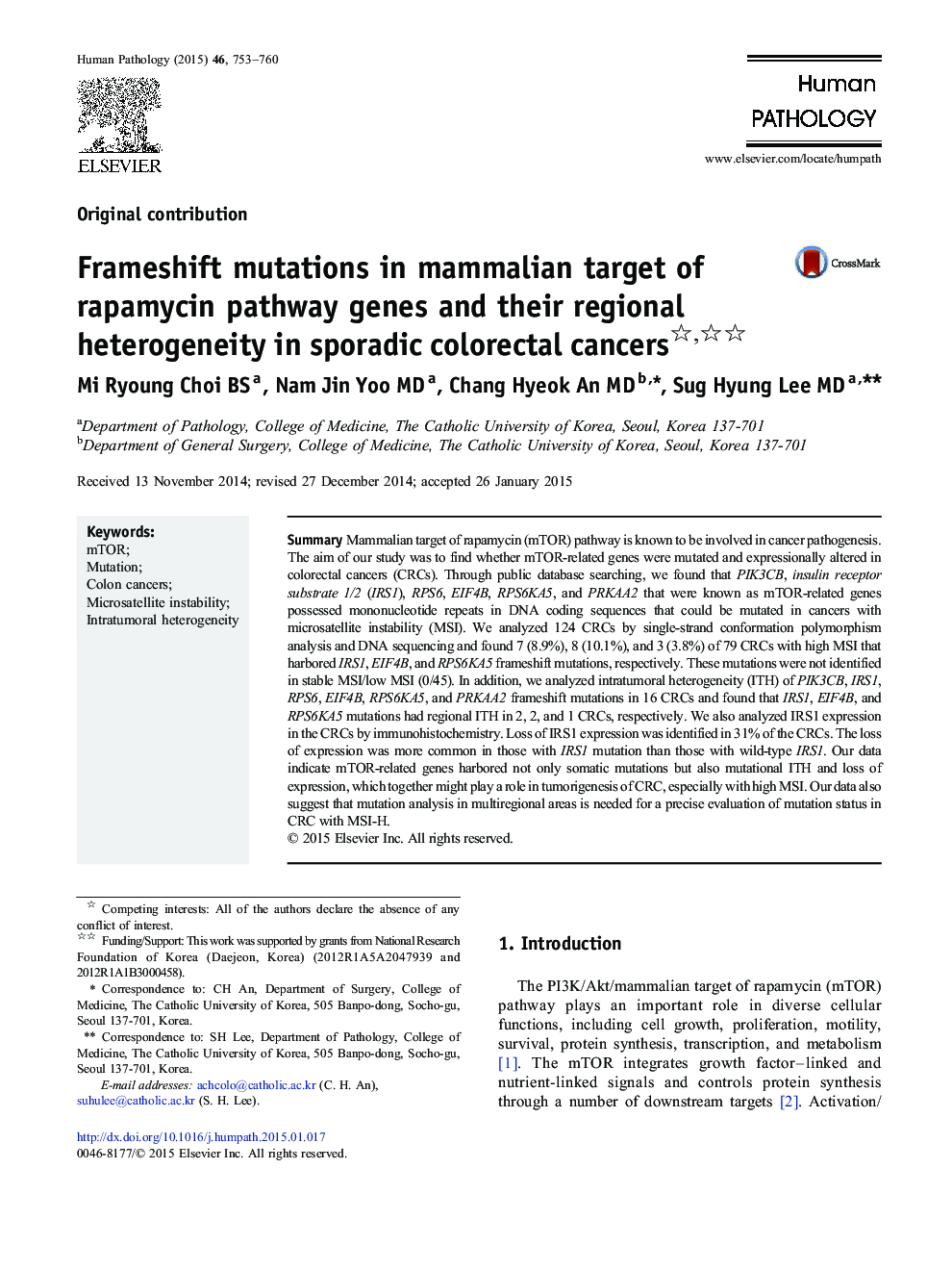| Article ID | Journal | Published Year | Pages | File Type |
|---|---|---|---|---|
| 4132674 | Human Pathology | 2015 | 8 Pages |
SummaryMammalian target of rapamycin (mTOR) pathway is known to be involved in cancer pathogenesis. The aim of our study was to find whether mTOR-related genes were mutated and expressionally altered in colorectal cancers (CRCs). Through public database searching, we found that PIK3CB, insulin receptor substrate 1/2 (IRS1), RPS6, EIF4B, RPS6KA5, and PRKAA2 that were known as mTOR-related genes possessed mononucleotide repeats in DNA coding sequences that could be mutated in cancers with microsatellite instability (MSI). We analyzed 124 CRCs by single-strand conformation polymorphism analysis and DNA sequencing and found 7 (8.9%), 8 (10.1%), and 3 (3.8%) of 79 CRCs with high MSI that harbored IRS1, EIF4B, and RPS6KA5 frameshift mutations, respectively. These mutations were not identified in stable MSI/low MSI (0/45). In addition, we analyzed intratumoral heterogeneity (ITH) of PIK3CB, IRS1, RPS6, EIF4B, RPS6KA5, and PRKAA2 frameshift mutations in 16 CRCs and found that IRS1, EIF4B, and RPS6KA5 mutations had regional ITH in 2, 2, and 1 CRCs, respectively. We also analyzed IRS1 expression in the CRCs by immunohistochemistry. Loss of IRS1 expression was identified in 31% of the CRCs. The loss of expression was more common in those with IRS1 mutation than those with wild-type IRS1. Our data indicate mTOR-related genes harbored not only somatic mutations but also mutational ITH and loss of expression, which together might play a role in tumorigenesis of CRC, especially with high MSI. Our data also suggest that mutation analysis in multiregional areas is needed for a precise evaluation of mutation status in CRC with MSI-H.
